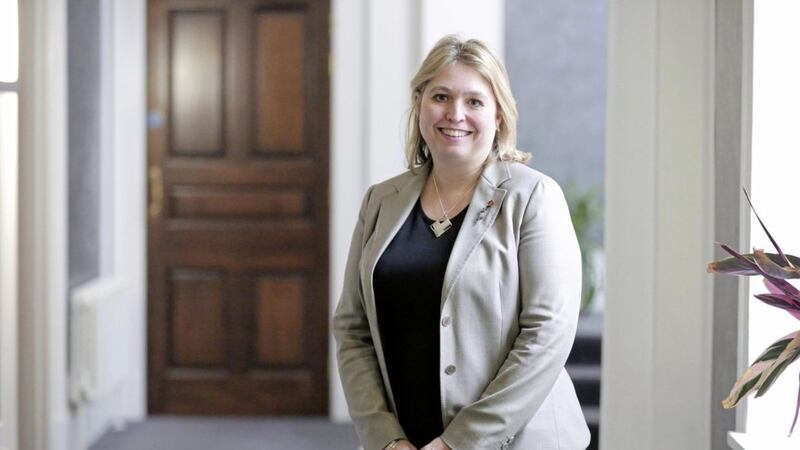My focus as Secretary of State is to help the people of Northern Ireland build a stronger, more stable and prosperous future.
Despite the significant progress that has been made over recent years, the legacy of the Troubles still casts a large shadow over many aspects of society and, for many individuals, the pain and hurt they experienced is as raw today as it was decades ago.
This is why the Government recently launched the consultation: Addressing the Legacy of Northern Ireland’s Past, which builds on the proposals agreed in the 2014 Stormont House Agreement.
Since my appointment as Secretary of State, I have met victims and survivors of the Troubles and heard first-hand the deeply moving stories about the hurt and suffering that continues to have a profound impact on individuals, families and communities.
There is a widely held view that the current mechanisms for addressing the past and helping victims and survivors simply do not deliver enough. I firmly believe that the 2014 Stormont House Agreement proposals have the potential to provide better outcomes for those who suffered most.
Through this consultation I am keen to listen to the concerns of victims, survivors and all other interested parties to build consensus and widespread support for the way ahead.
There are no easy answers, but my hope is that this provides the opportunity for everyone to have a say and share their views.
The Troubles have directly affected tens of thousands of people across Northern Ireland, the rest of the United Kingdom, Ireland and further afield.
And it is not just the people who lived through the Troubles. The impact is still being felt by younger generations.
There is no one way that we can try to address the legacy of the past that will meet the needs of everyone affected. Each victim and survivor of the Troubles - those most deeply affected - is an individual with unique experiences, personal views and varying needs.
Some people want to pursue justice for crimes committed and not resolved. Others just want more information on what happened to them or their loved ones. Some feel that what matters most is acknowledgement and recognition of what they experienced and for future generations to be able to find out more about different people’s experiences of the Troubles. For other people, the past is simply too painful and they would prefer to leave it alone.
The different bodies set out in the consultation are designed to try to respond to the varying needs of different people.
The Historical Investigations Unit will investigate unresolved deaths. The Independent Commission on Information Retrieval will help families privately seek information about the deaths of loved ones. The Oral History Archive will give everyone affected by the Troubles the chance to tell their story. And the Implementation and Reconciliation Group will review and assess the other bodies and help to promote reconciliation and anti-sectarianism across Northern Ireland.
These are complex and sensitive issues and there will be different ideas about all of these proposals.
Indeed some people believe that these are not the right proposals at all and think we should take a different approach. But for our part, the UK Government continues to support the proposals set out in the Stormont House Agreement.
But now is the chance for everyone to have their say. I hope that people across Northern Ireland will take the time to consider the consultation and share their views on how, collectively, we can find a better way to come to terms with our difficult past.








